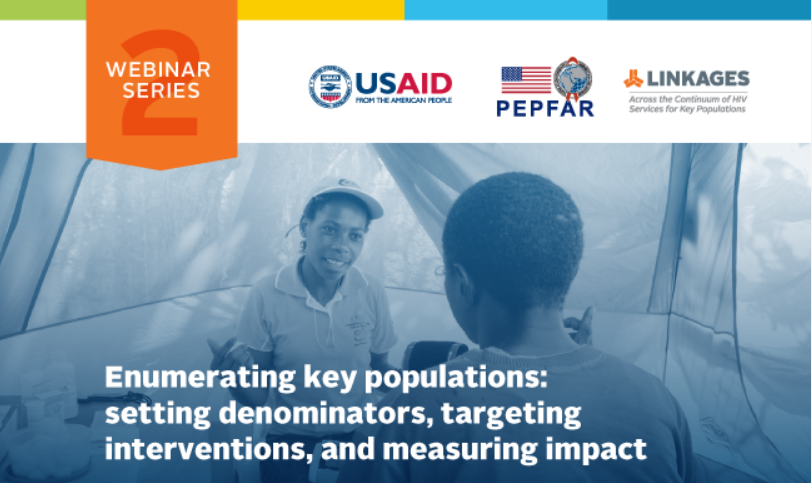Event Date
Webinar hosted by the LINKAGES project as part of the Key Populations: Evidence in action series.
To access the audio recording of the webinar, please click here.

On November 30th, the USAID– and PEPFAR-supported LINKAGES project hosted the second webinar in a webinar series entitled Key Populations: Evidence in Action. This webinar included presentations on empirically-based population size estimation, mapping methodologies, and reaching key populations in areas without primary data collection.
Annette Verster, World Health Organization
Moderator
Navindra Persaud, FHI 360/LINKAGES Strategic Information
Welcome/Overview
Dimitri Prybylski, U.S. Centers for Disease Control and Prevention
Overview of empirical methods for population size estimation that may be linked to biobehavioral surveys
Didier Kamali, FHI 360/LINKAGES/Cote d’Ivoire
Progression approach: generating key population size estimation data to facilitate program implementation and target setting where data do not exist
Stefan Baral, Johns Hopkins Bloomberg School of Public Health
Small area estimation for key populations
Tobi Saidel, Partnership for Epidemic Analysis
The unknowns – understanding and reaching non venue-based key populations
This webinar series is intended to be a platform for (1) sharing state-of-the-art knowledge, emerging evidence, and promising practices for achieving greater impact on the HIV epidemic through programs for key populations; (2) addressing pressing questions and controversial issues from the perspective of key population experts and community members; and (3) fostering dialogue among a broad set of partners working in key-population-focused research, programming, and advocacy.
The webinars will cover a range of topics, including introduction and scale-up of HIV self-testing and pre-exposure prophylaxis for key populations; cascade monitoring and data use; information and communication technology-based interventions; effective strategies for addressing violence, stigma, and discrimination; differentiated models for delivering antiretroviral therapy; and community empowerment.
This webinar series is open to anyone interested in key populations, including program implementers, researchers, policy-makers, advocates, funders, and community members.
